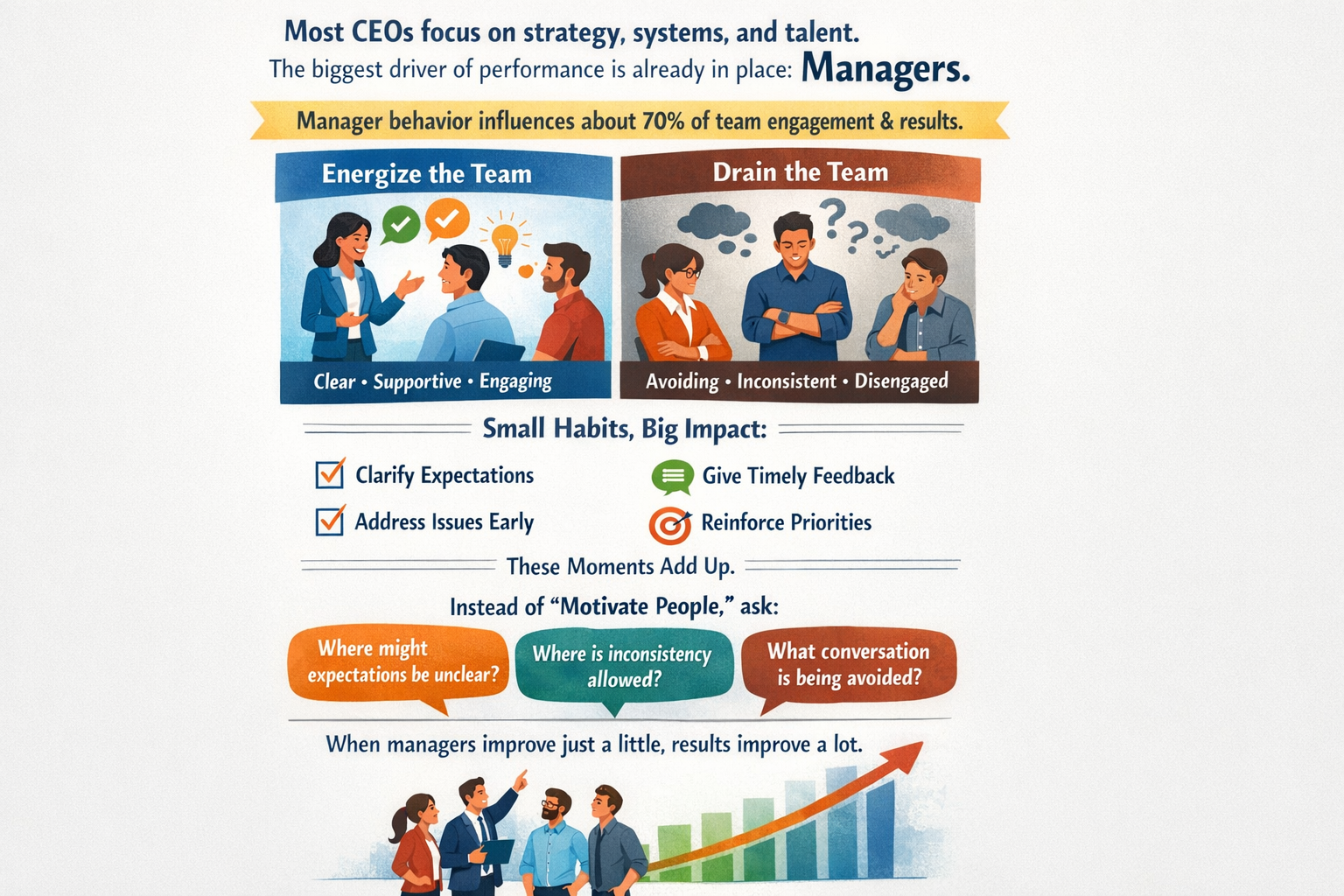Managing at Work is Like Teaching School

In a busy workplace, managers can be tempted to treat every employee the same despite the diversity of experiences, strengths, and preferences among human beings. The reasons might be not wanting to show favoritism, not making it a priority to get to know each person as an individual, or simply believing that the best management style is the best in all situations.
Let’s think back to our childhood experiences at school. Did everyone in our second-grade class read at the same level? Did all our high school classmates love English literature or struggle with geometry as much as we did? Was it only the kids who didn’t do their homework or study for the test who got Bs, Cs, or Ds? When we got C on the first science test, what helped us get an A on our first quarter report card?
Sometimes, reading the textbook, completing assignments, and studying for tests made the difference. Other times, putting in the extra effort only raised our grade from a C- to a C. How discouraging! Often, it was the teacher who made the difference. At the University of Guelph, the outstanding reputation of one first year chemistry professor led to his classroom always being full. Rather than attending a different professor’s chemistry class as their official schedule directed, many students crowded around the open classroom door to hear the preferred professor explain chemistry in a way that made sense to teenagers. The Oberlin High School teacher who was recently awarded National Teacher of the Year captured the hearts of his students by talking one-on-one with those who seemed troubled, attending athletes’ games, and being available for extra help. His interest in the students’ success helped these young people with school and with life. Many flourished due to his emotional, academic, and life-relevant support.
Many students succeed because teachers took notice, offered time, and taught lessons in different ways to serve varied needs and learning styles. The most appreciated managers at work exhibit similar attitudes and behaviors. They invest in the success of their employees. They explain and re-explain. They train and retrain. They praise progress and achievement. They listen to employees’ workplace or life pains. They set expectations and patiently support individuals along the road to fulfilling expectations. And sometimes, they point individuals towards a path that better suits them.
Effective leaders at home, at school, or at work recognize that people are unique individuals. They pay attention to human differences and modify their leadership strategy to appropriately guide each-and-every valuable human being to success.
How skilled are you in meeting your team members where they are and supporting them along their success journey? What steps could you take to enhance your leadership practices? Conversational Management may be a right fit for you. Check it out by contacting me at cathie@agonleadership.com.


